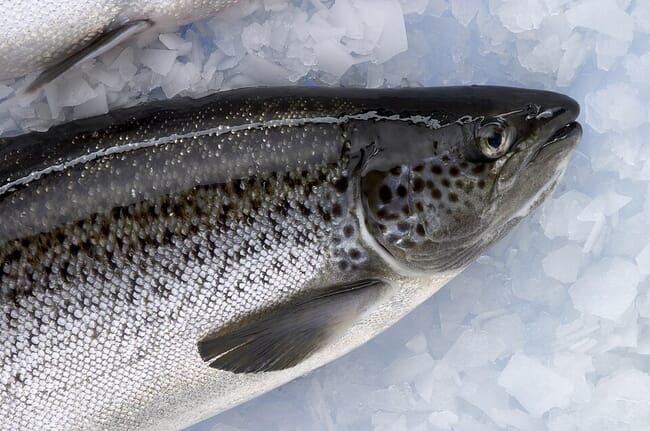
© Peter Whyte, CSIRO
New research presented by dsm-firmenich animal nutrition and health (ANH) at their Global Aqua Days 2025 event in Athens, Greece, has demonstrated that an essential oil blend can significantly reduce sea lice attachment in high-value aquaculture species, such as Atlantic salmon. The study found that dsm-firmenich’s Digestarom PEP MGE achieved a 68 percent reduction in total lice count compared to the control group. This finding is a significant step, reinforcing that essential oil-based solutions not only promote animal well-being but also offer environmental advantages for aquaculture producers.
Sea lice are among the most concerning parasites in salmon aquaculture, affecting both environmental and financial performance. Furthermore, treatments for sea lice can often accentuate the problem, causing extensive skin and mucus damage while increasing fish stress levels.
Digestarom PEP MGE is a matrix-encapsulated blend of essential oils. These active components are known to have many biological functions, including antimicrobial, anti-inflammatory and anti-oxidant, as well as improving feed efficiency and growth.
“Improvements in growth and survival directly reduce the environmental footprint of salmon production, supporting long-term sustainability. Because Digesterom PEP MGE is delivered through feed, it eliminates handling stress and prevents damage to the skin and mucus layer, helping to maintain high welfare standards,” said Louis Buttle, aqua lead for DSM-firmenich ANH’s sustainability service and global key account manager, to The Fish Site.
The study
The trial tested four levels of Digestarom PEP MGE inclusion, ranging from zero to 1,200 grams per tonne. Each treatment started with 32 fish with an average weight of 200g, with three replicates per treatment group. Following six weeks of pre-challenge experimental feeding, a portion of the fish was challenged with a sea lice test, before continuing experimental feeding post-challenge.
The study confirmed the impact of the product on sea lice infestation in Atlantic salmon. The two highest inclusions of Digestarom PEP MGE achieved a 68 percent reduction in total lice compared to the control, demonstrating a clear and significant decrease in parasite load while maintaining strong zootechnical performance.
Buttle explained that Digestarom PEP MGE works by strengthening the fish’s natural defences and resilience against sea lice attachment.
“Our hypothesis is that its essential oil-based formulations provide anti-inflammatory and antioxidant benefits, help modulate the gut microbiota and also enhance mucosal protection. While the exact modes of action are still being investigated, sea lice are parasites that come into direct contact with the salmon’s skin mucus. As such, our follow-up analysis from the trial will focus on understanding these mucosal changes in greater detail,” said Buttle.




